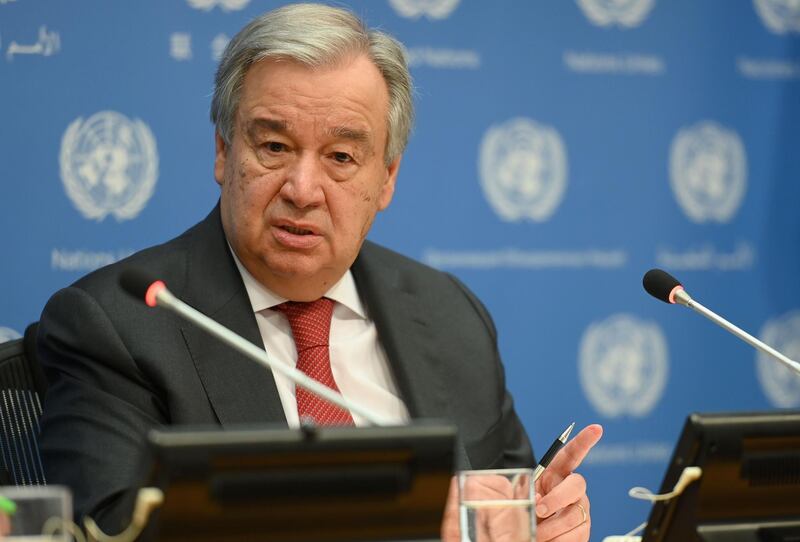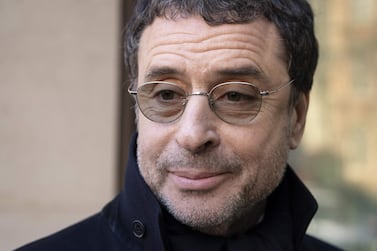UN Secretary General Antonio Guterres on Tuesday called the situation in Libya a “scandal”, even as his envoy said the rival factions showed "genuine will" as they planned their first meeting for a lasting ceasefire.
“I am deeply frustrated with what’s happening in Libya,” Mr Guterres said.
He was critical of countries that last month met in Berlin to push for progress in Libyan peace talks.
“They committed not to interfere in the Libyan process and they committed not to send weapons or participate in any way in the fighting,” Mr Guterres said at the UN headquarters in New York.
“The truth is that the Security Council arms embargo remains violated.”
He said the mediation efforts of the UN envoy to Libya, Ghassan Salame, was “the only good news” there.
Mr Salame said earlier on Tuesday that there was a real will for negotiations between opposite sides.
But he agreed that the arms embargo was being breached and that mercenaries and weapons were still arriving “by air and by sea” in Libya.
Forces loyal to eastern-based commander Field Marshal Khalifa Haftar have for the past 10 months been trying to take the capital Tripoli from the Government of National Accord and the militias who defend it.
The talks bring together five senior military officers from Field Marshal Haftar’s Libyan National Army and five from forces aligned with the GNA in Tripoli.
On Wednesday EU representatives met Field Marshall Haftar in Benghazi.
"We briefed on progress of the Berlin process, welcomed the launch of 5+5 military talks in Geneva and emphasized the need for constructive engagement on all sides," German ambassaor to Libya Oliver Owcza said.
Pleased to be back in #Benghazi! Comprehensive exchange with Chairman Sakar Boujawari on how to expand 🇩🇪🇱🇾🇪🇺 technical cooperation to the East. We also welcomed plans for holding municipal elections soon. pic.twitter.com/k4L6EmsQSn
— German Embassy Tripoli (@GermanAmbLBY) February 5, 2020
Fighting has continued despite a call for a truce by Russia and Turkey starting on January 12 and the international summit on Libya in Berlin on January 19, which was aimed at reducing international interference.
Mr Salame deplored the presence of more than “20 million pieces of weaponry” in the country and said he had asked the UN Security Council to pass a resolution reaffirming its arms embargo and measures to ensure it is respected.
He said talks between the two sides, who did not meet face to face in Geneva on Monday, were “to bridge the gaps in their views on how the lasting, sustainable ceasefire can be organised".
“We started yesterday to discuss with them a long list of points on our agenda, starting with an attempt to transform the truce into a more solid one, less often violated by either side, and to transform that truce into a real agreement on a lasting ceasefire,” Mr Salame said.
The conflict that developed in Libya in the years since Muammar Qaddafi was toppled in 2011 has given space to militants and migrant smugglers, and crippled Libya’s oil-reliant economy.
A blockade of oil ports and fields by groups loyal to Field Marshal Haftar, which began just before the Berlin conference, has reduced oil output by about one million barrels per day, losing the country almost one billion dollars in revenue, the National Oil Company said Wednesday.






